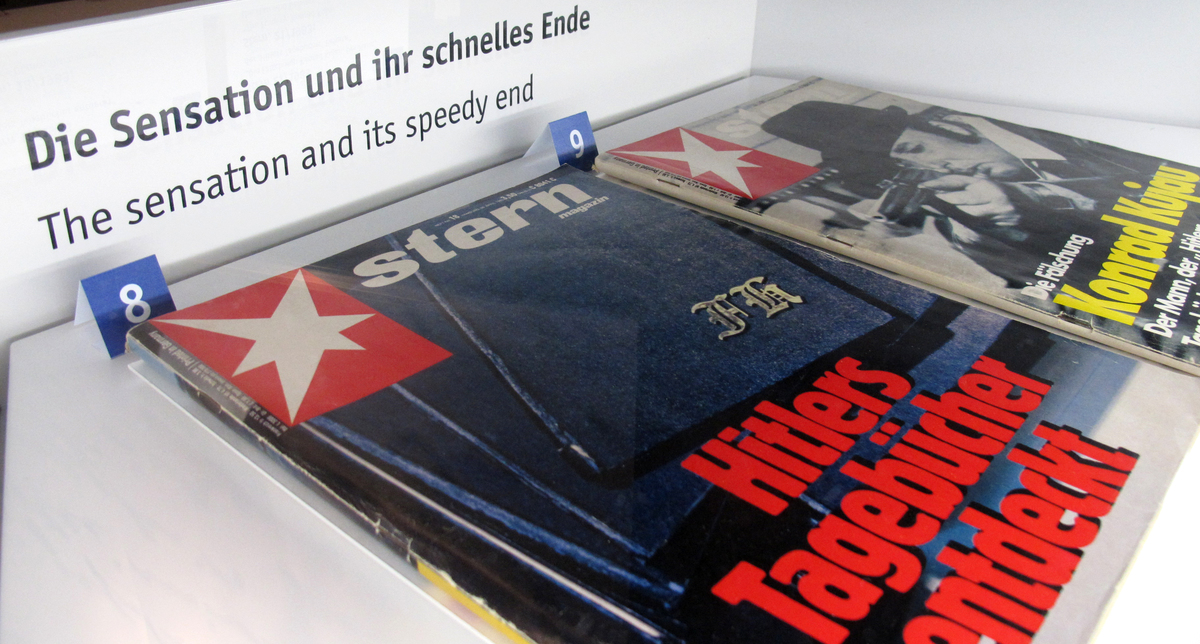Abstract
On April 22, 1983, the news magazine
Stern told the public that it had
discovered Adolf Hitler’s diaries. Three days later, it presented them
at a press conference. The magazine had paid 9.3 million marks (more
than 4 million U.S. dollars at the time) for 62 volumes of the so-called
Hitler diaries, which were quickly revealed as forgeries. In July 1985,
forger Konrad Kujau and former Stern
reporter Gerd Heidemann were each sentenced to more than four and a half
years in prison. This press scandal was instrumental in discrediting the
tendency toward an “unprejudiced” and euphemistic assessment of the
Third Reich in West German popular culture.
